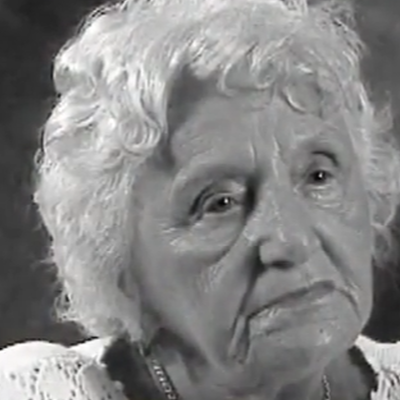
Elsa Frank
Nashville, Tennessee
Born: 1911 Hochst im Odenwald, Germany
Refugee: Hochst im Odenwald, Germany
“We were Germans in the true sense of the word. Our heart was in our country but we were rejected because of our religion,” reflected Elsa Herzfeld Frank. It hadn’t always been that way. Elsa grew up in a small town and attended synagogue with twenty other Jewish families. They were integrated into town life with neighbors of other faiths: her Hebrew teacher was also the town’s choir director; her mother was in a social club; her father was in a bridge club; and Elsa led a youth club. Elsa furthered her education and became an accountant in Frankfurt. She was happy.”
